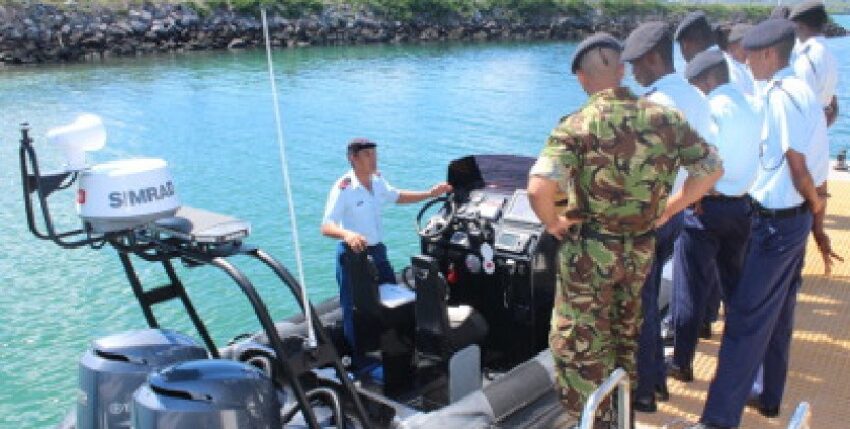The "Baba Ali", a Seychellois fishing vessel, was travelling through the Seychelles' economic zone when the authorities intercepted it with a drug cargo in May 2021.
As part of an operation coordinated by the Seychelles Air Force, the Seychelles Coast Guard and the National Information Exchange and Coordination Centre, the authorities boarded and inspected the vessel. The finds - heroin and hashish worth around 1.2 million dollars - show the extent of the threat posed by the regional drug trade. The seizure of the drugs and the arrest of three other Seychellois and four Indonesian nationals showed that the island nation's efforts to increase maritime security were successful, Seychelles Fisheries Minister Jean-Francois Ferrari said at a press conference.
The Seychelles, an archipelago around 1,800 kilometres north-east of Madagascar, is made up of 115 tiny islands, making it difficult to monitor its waters. The same applies to other island states in the western Indian Ocean, including the Comoros, Madagascar, Mauritius and the French island of Réunion.
However, over the past 25 years, the island states have gradually strengthened maritime security through their membership of the Indian Ocean Commission (IOC), which has helped them to improve law enforcement co-operation, intelligence sharing and cross-border coordination in the fight against maritime crime. The Commission is the only intergovernmental organisation consisting exclusively of island states. The European Union (EU) funds its maritime security efforts in Africa.
Important drug route
The island states are located on a notorious stretch of the western Indian Ocean, which has been an important drug route for decades. Other maritime problems in the region include illegal, unreported and unregulated fishing, piracy and kidnapping, as well as trafficking in weapons, humans and wildlife. The maritime security problems in the region have led to serious social consequences. The Seychelles have the highest per capita heroin consumption rate in the world. The other island states in the region face similar problems, including an influx of cocaine, cannabis, synthetic cannabis, ecstasy and methamphetamine. The islands are located in and around the Mozambique Channel - a 1,600 kilometre waterway between Madagascar and East Africa that carries around 30 % of the world's tanker traffic. The waters are an important route for transporting heroin from Afghanistan via Pakistan to Western Europe.
According to the United Nations Office on Drugs and Crime, the amount of heroin seized along the Indian Ocean trafficking route more than doubled between 2018 and 2019. Wildlife trafficking has also increased due to widespread poverty and increased demand for exotic animal products abroad.
The IOC's commitment to maritime security in the region began in the early 1980s, when cocaine and heroin became important sources of income for drug traffickers. The Commission gradually built up a network of fisheries and law enforcement agencies that exchange information and carry out joint inspections at sea.
The IOC works within the framework of the maritime safety programme funded by the EU with regional bodies such as the Intergovernmental Authority on Development, the East African Community and the Common Market for Eastern and Southern Africa.
Source: defenceweb










